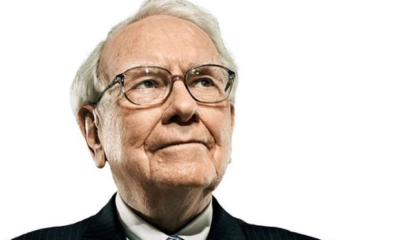Success Advice
7 Common Mistakes That Billionaires Make

If you are currently working your way to be successful in your own line of business or in your field of profession, one of the most important things you ought to have is a good mentor. Naturally, small and starting entrepreneurs and professionals as well as aspiring millionaires and billionaires all look up to the existing top-grossers in the world today and try to follow their examples. What many fail to realize is that these amazing billionaires at present have also had their share of mistakes in the past that have helped them become what they are today.
What are some of the most common mistakes that most billionaires make? These are also the same blunders that have probably caused them setbacks in their careers or businesses and have even caused great failure for some. The only thing that sets them apart from those who have not reached their level of success is that they chose not to give up and to instead use these slipups to help them achieve more.
Billionaire Mistakes
Mistake #1: Lack of Research
Sometimes when you are suddenly hit with a striking idea that you deem as a stroke of genius, you jump right into it without doing the proper research involved. Naturally, any idea for a product or service can turn into a great business and can also end up in the opposite direction. No matter how excited you may be to get right into something, you need to research all the details involved first, to study your target market, and do a feasibility review. This is especially important when you are planning to shell out a huge amount of money for a business idea that can turn out as a flop.
Henry Ford, for instance, is a well-known billionaire today in the field of automobiles. He has always been recognized as a man of efficiency, being able to make ordinary things extraordinary. However, Henry Ford has also had his share of gaffes.
One very big and expensive mistake Henry committed was to start up a company town called Fordlandia to serve as his own rubber production plant. Because he was not an expert in putting up a town especially in Brazil, he failed. He made the mistake of not doing sufficient research first before indulging in this project. He also did not hire excellent specialists who could have given him the needed advice and guidance for going about this town.
Mistake #2: Focusing on the Wrong Opportunities
It is certainly difficult to tell the right opportunities from the wrong ones, especially if you lack experience. Being a risk-taker is an important characteristic in the business world. However, you ought to weight the risks you take. You also need to know when to quit. Always remember that when you focus too much on one or two things that do not seem to be picking up even after you have given so much, you might not realize that you are actually missing out on other better opportunities for you. Thus, you still have to keep your eyes and ears open for other breaks or prospects while you are trying to work out your existing ones.
One example is the story of Warren Buffett, one of the most popular billionaires of today. Back in the 1960s, he chose to buy a New England textile mill and ran it for twenty years even though it was not improving at all.
Warren Buffett did not immediately see that the textile business then was truly hopeless. Eventually, when Buffett accepted his mistake and decided to move on, he shut down this company and went on to the insurance arena and to other industries that brought him great fortunes.
Mistake #3: Miscommunication
It is very important to communicate well with the people you work with and those who work under you. Keep in mind that the people who work for you are your greatest assets. You cannot be as successful if you do not have leverage on these individuals. Thus, it is vital to build a good relationship with them.
Steve Jobs, for example, was known to fail in open lines of communication. Because he always assumed that people ought to instantly understand and grasp his ideas and suggestions, he ended up losing highly talented people who could have made work much easier in the future. When you lose people, you will end up spending more from hiring and training efforts.
Even billionaires cannot just buy people’s loyalties and emotions. Relationships are of essence too.
Mistake #4: Cost-Cutting
When you really need to cut on your costs to save your business or to make a greater profit, you have to carefully weigh the pros and cons first. You also need to check if the methods you will be utilizing are worthwhile and will not aggravate many. The successful billionaires today have had their share of cost-cutting decisions.
In the case of Ralph Lauren, he made the huge mistake of having Chinese laborers make the 2012 US Olympics team uniforms under his brand name. Since this event is rooted in a nationalistic aspect, it is imperative that the uniforms bear the sign “Made in the USA”. This wrong decision certainly caused a big stir in the nation, which has provoked tons of people to boycott Ralph Lauren.
Indeed it has caused a stain on the name of this famous clothing company.
Mistake #5: Missed Chances
When you are engaged in a certain industry, you have to continuously study the market and its needs. Even if your current products and services are doing well, you still have to be on the lookout for related opportunities in this field. What’s more, it is best to keep up-to-date with the latest innovations.
Who would have thought that Bill Gates, one of the well-known billionaires at present, would make the mistake of overlooking the great potential of the search engine?
When the Internet was just beginning, Microsoft chose to concentrate on developing a browser or navigator instead of coming up with its own search engine. Hence, Google beat Microsoft to this turf, quickly tripling its revenue shortly after it came out.
Bill Gates admitted that it was a lost billion-dollar opportunity.
Mistake #6: Failure to Explore Options
When you see an opportunity that you want to grab, it is crucial for you to check out all your options. Along with the proper research, you have to explore the different ways that you can make this opportunity work out for you. If you fail at one, you have to try another one before someone beats you to it. Would-be billionaires should learn how to weigh opportunities.
One great story in this regard is that of Larry Page of Google. He already had the idea about the amazing promise of social networking especially when Friendster had become popular. When Google offered to buy Friendster in 2003, Larry Page did not act on developing their own.
Before Larry realized it, it was already too late because Facebook had captured the market and no one else stood a chance against this booming social networking site.
Mistake #7: Negative Publicity
In every business and in any industry, publicity is very important. Your public image and that of your brands count. Of course you need to carefully build a positive name that will make people feel good all the time instead of reminding them of negative things. This is why PR is a very important aspect in business too and even in a career that exposes you to the public. Hence, you should learn to be more charismatic and to know how to use the media to your advantage.
Since young billionaire Mark Zuckerberg has always expressed himself without much regard for what others think, he has made a lot of mistakes already with his statements and actions. Mark Zuckerberg’s cocky, arrogant, and blunt personality has been known to give his company ‘Facebook’ a bad image as he is a representative of the website. As a public figure, he is still in the learning process. Not taking crap from people is good in business, but the thin line between cocky and confident should be something you are very clear on when you are constantly in the public eye.
These are the seven common mistakes that a lot of billionaires have made in the past and have learned from. As an aspiring billionaire, you ought to consider these mistakes and do your best to avoid them and to use them for your own good.
Business
Scaling a Business? Here’s What Usually Goes Wrong
Before you hire, expand, or chase bigger revenue, here’s what every founder needs to fix to scale without losing control, culture, or quality.

Growing a business is the dream. But scaling one? Honestly, that is a completely different reality. (more…)
Personal Development
From Classroom to Boardroom – How to Transition Successfully
Moving from classroom to corporate? Here’s how to navigate career transitions, master workplace culture, and stand out in the boardroom.

The transition from academic life to corporate work is major and often tough, requiring careful planning and preparation. (more…)
Did You Know
This Move Can Help You Keep More of Your Income
What if keeping more of your income wasn’t about earning more, but choosing a smarter place to live?

Living more cheaply often makes the biggest difference when money is tight. If rent feels too heavy or bills climb faster than expected, changing where you live might help a lot. (more…)
Business
How to Build a Brand That Actually Connects (For Businesses of Any Size)
Brand growth in 2026 isn’t about shouting louder; it’s about clarity, consistency, and human connection that customers genuinely trust.

In the middle of a busy workday, it’s easy to view brand building as a luxury. Honestly, we often treat it like a coat of paint we apply after the house is built. But as we navigate the landscape of 2026, it’s become clear that branding is actually the foundation. (more…)
-

 Business4 weeks ago
Business4 weeks agoHow Smart Brands Use Instagram Data to Outperform Competitors
-

 Business4 weeks ago
Business4 weeks agoThe Paradox of Modern Work: Can Tech Make Us More Human?
-

 Change Your Mindset3 weeks ago
Change Your Mindset3 weeks agoThe Hidden Reason You Can’t Stay Consistent
-

 Change Your Mindset3 weeks ago
Change Your Mindset3 weeks agoThe Real Psychology Behind Quitting Too Soon
-

 Entrepreneurs2 weeks ago
Entrepreneurs2 weeks agoThe Six Pillars That Ground Purpose-Driven Leadership (The Berenyi Life Blueprint)
-

 Business3 weeks ago
Business3 weeks agoDIY vs Delegate: The Real Reason You’re Burned Out
-

 Business3 weeks ago
Business3 weeks agoHow AI Agents Can Quietly Expose Your Business to Serious Risk
-

 Life3 weeks ago
Life3 weeks agoWhy Moving to a New City Can Change Your Mindset





























10 Comments